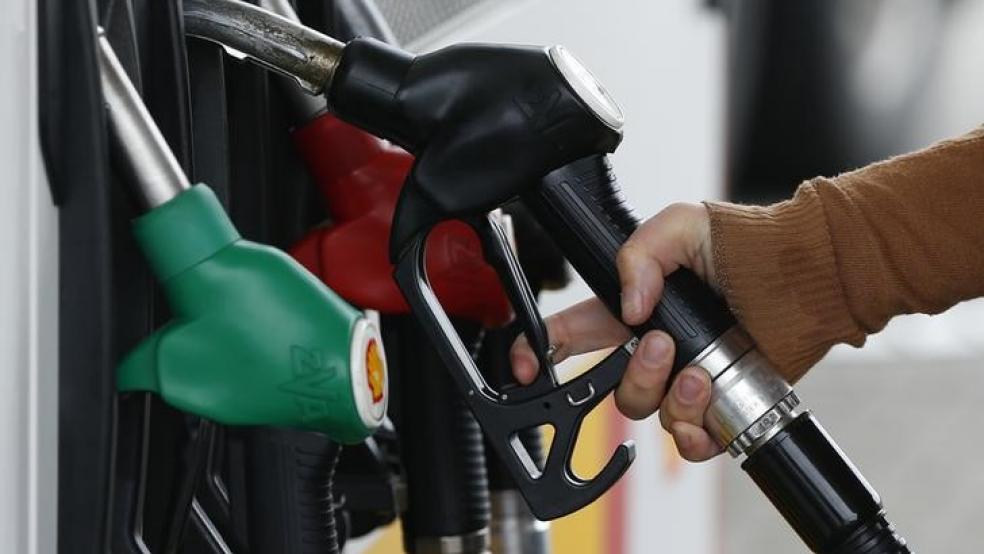Inflation is expected to run higher following the Russian invasion of Ukraine, as supply chains face increased pressure and prices rise for basic commodities such as food and fuel. Economic growth will likely take a hit, as well, though most analysts do not expect to see a recession as result. However, much depends on how the war in Europe plays out.
“The primary impact is going to be on energy prices, but we’re likely going to see a slower recovery this year than we otherwise would have,” Bill Adams, chief economist for Comerica Bank, told The Washington Post. “We’re already facing higher energy prices — both at the pump and for natural gas, which is raising home heating costs this winter — and both will get worse in the coming months.”
How bad could it get? Russia is one of the largest exporters of oil and natural gas in the world, and its actions can influence prices everywhere. Some of its most important gas pipelines cross Ukraine, and if they are damaged – or if Russia responds to sanctions by reducing the amount of oil it supplies to the world market – prices could surge significantly.
Ukraine is a major exporter of fertilizer, wheat, corn and food oils, and the war will likely reduce output, putting upwards pressure on the price of a variety of agricultural goods. The country is also a key supplier of neon gas, an important component in the production of semiconductors, and shortages would likely mean that manufacturers need to raise prices and reduce volumes. That could be particularly problematic for high-tech goods such as cars, which have been hounded by chip shortages for several years.
The need to avoid airspace over Ukraine and Russia also threatens to further snarl global supply chains.
“Russia and Ukraine are not as tightly integrated into the global supply chain as a lot of other major powers are, but they still supply certain commodities,” Phil Levy, chief economist for logistics company Flexport, told The Post. “The indirect effects are potentially very big and hard to quantify.”
Investors aren’t too worried – yet: Oil jumped over $100 a barrel on Thursday as investors took in the news of the invasion, but prices eased later in the day and on Friday. Stock prices plunged on Thursday, too, before recovering later the day, and surged on Friday, as investors decided that the war was unlikely to derail the U.S. economy.
Still, Russian aggression adds unwelcome pressure to a recovering economy. As the Post’s Abha Bhattarai, Tony Romm and Rachel Siegel put it, “The geopolitical turmoil adds a heavy dose of uncertainty to a recovery that is already without a playbook.”
Former Treasury Department chief economist Karen Dynan said the biggest concern is how the war shapes expectations. “The broader worries are about how all of this affects consumer and business confidence,” she told the Post. “There is a ton of uncertainty out there — that’s been true for a couple of years now because of the virus — but this is a very distinctive geopolitical event that could cause businesses to hesitate and to put off plans to hire and expand.”
Overall, most analysts think the economy will take a hit, but a relatively mild one. “What we’ve seen is oil prices have gone up, and equity prices at least initially retreated on all of this. Together, that’s a mild, stress mild, stagflationary hit to the economy,” Wells Fargo chief economist Jay Bryson said. “It’s going to push inflation higher than it is and it’s probably going to slow growth. But it’s probably not enough to push the economy into recession.”
The Fed will keep up the fight against inflation: On Thursday, several Fed officials said they didn’t think the war would alter the central bank’s plan to start raising interest rates as part of the effort to reduce inflation. On Friday, Federal Reserve Bank of St. Louis President James Bullard, a noted inflation hawk, said that he isn’t worried about the potential hit to economic growth and still wants the central bank to start raising interest rates aggressively, sticking to his call for a full percentage point increase by July.
“The direct linkages to the U.S. economy are minimal so I wouldn’t expect that much impact directly on the U.S. economy,” Bullard said. “Of course, we will have to watch this very carefully and see what happens in days ahead.”




